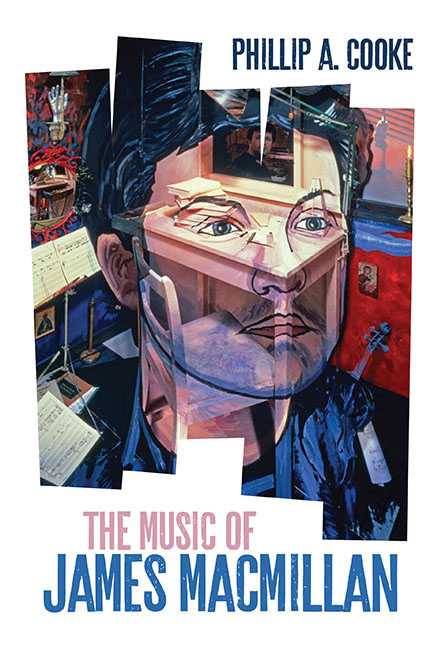Book contents
- Frontmatter
- Contents
- List of Plates
- List of Tables
- List of Music Examples
- Foreword
- Prologue
- Acknowledgements
- Permissions
- 1 The Keening – Cumnock, Edinburgh and Durham
- 2 The Tryst – Glasgow and the Road to Isobel Gowdie
- 3 Scots Songs – The Confession of Isobel Gowdie, Tuireadh and Veni, Veni, Emmanuel
- 4 A Different World – Visitatio Sepulchri, Seven Last Words from the Cross and Inés de Castro
- 5 Changed – Triduum and Quickening
- 6 Raising Sparks – ‘Scotland's Shame’, Politics and A Scotch Bestiary
- 7 A New Song – Mass and MacMillan 's Choral Renaissance
- 8 After Virtue – Symphony No. 3, The Sacrifice and the St John Passion
- 9 Serenity – Violin Concerto, Clemency and the St Luke Passion
- 10 Tu es Petrus – Bellahouston Park and the Return to Cumnock
- List of Works and Recordings
- Bibliography
- Index of Works by James MacMillan
- General Index
4 - A Different World – Visitatio Sepulchri, Seven Last Words from the Cross and Inés de Castro
Published online by Cambridge University Press: 31 August 2019
- Frontmatter
- Contents
- List of Plates
- List of Tables
- List of Music Examples
- Foreword
- Prologue
- Acknowledgements
- Permissions
- 1 The Keening – Cumnock, Edinburgh and Durham
- 2 The Tryst – Glasgow and the Road to Isobel Gowdie
- 3 Scots Songs – The Confession of Isobel Gowdie, Tuireadh and Veni, Veni, Emmanuel
- 4 A Different World – Visitatio Sepulchri, Seven Last Words from the Cross and Inés de Castro
- 5 Changed – Triduum and Quickening
- 6 Raising Sparks – ‘Scotland's Shame’, Politics and A Scotch Bestiary
- 7 A New Song – Mass and MacMillan 's Choral Renaissance
- 8 After Virtue – Symphony No. 3, The Sacrifice and the St John Passion
- 9 Serenity – Violin Concerto, Clemency and the St Luke Passion
- 10 Tu es Petrus – Bellahouston Park and the Return to Cumnock
- List of Works and Recordings
- Bibliography
- Index of Works by James MacMillan
- General Index
Summary
If Veni, Veni, Emmanuel found James MacMillan exploring the Easter narrative in his work for the first time in a substantial and meaningful fashion, the years 1993 to 1997 found him examining this event in an almost obsessive manner, returning again and again to the three days of drama, tragedy and redemption that are at the heart of Christianity. Over this four-year period, he composed at least ten works overtly influenced by the events of Holy Week, ranging from short chamber works such as Kiss on Wood (1993) and Fourteen Little Pictures (1997) to the large-scale cantata Seven Last Words from the Cross (1993) and the orchestral triptych Triduum (1996–97). As was stated in the previous chapter, MacMillan has spoken often about being ‘drawn again and again to the Passion’, that he seems ‘to be going round and round the same three days of history’ – it was no surprise he felt this following an intense period of composition on such a dramatic and personally significant event. Although the Easter story has remained a powerful source of inspiration for the composer since the 1990s, it was this four-year period that saw MacMillan's most concentrated exploration of the Passion.
The years 1993 to 1997 were also some of the most successful of MacMillan's career with high-profile commissions, recordings and awards following on from the breakthrough successes of The Confession of Isobel Gowdie and Veni, Veni, Emmanuel. One of the most tangible of these saw MacMillan as the featured composer at the 1993 Edinburgh Festival, during which eighteen of his works were performed including the premieres of the one-act opera Tourist Variations (more of which later) and the trumpet concerto Epiclesis by John Wallace and the Philharmonia Orchestra, conducted by Leonard Slatkin. The exposure generated by the inclusion of MacMillan's work in the festival was both positive and negative, but it did highlight the position the then 34-year-old composer held in the Scottish musical firmament – virtually all his major works to date were featured including Isobel Gowdie, Búsqueda and Cantos Sagrados alongside more obscure pieces such as Study on Two Planes, Beatus Vir (both subsequently withdrawn) and Catherine's Lullabies.
- Type
- Chapter
- Information
- The Music of James MacMillan , pp. 71 - 96Publisher: Boydell & BrewerPrint publication year: 2019



